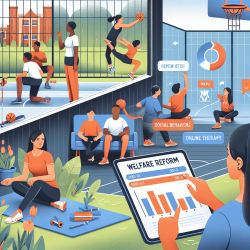Individualized Education Program (IEP) meetings can often feel overwhelming, especially for Speech Language Pathologists (SLPs) working in schools. The stakes are high, and the responsibility to provide tailored, effective interventions for each student can leave many feeling lost. However, with the right strategies and mindset, these meetings can become opportunities for meaningful progress and collaboration.
As an SLP, your role in the IEP process is crucial. You bring specialized knowledge that helps shape the educational experience for students with speech and language needs, including those with autism. Here are some strategies to help you navigate IEP meetings more effectively:
Preparation is Key
- Gather Data: Collect data on the student's current performance levels. This includes assessments, progress reports, and any relevant observations.
- Know the Student: Familiarize yourself with the student's history, strengths, and areas of need. Understanding their unique profile will help you advocate more effectively.
- Set Clear Goals: Develop specific, measurable, attainable, relevant, and time-bound (SMART) goals that align with the student's needs and capabilities.
Effective Communication
- Speak Clearly: Use clear, jargon-free language when discussing the student's needs and progress. This ensures that all team members, including parents, understand your points.
- Be a Good Listener: Listen actively to the concerns and suggestions of other team members. Collaboration is key to developing a comprehensive IEP.
- Stay Positive: Focus on the student's strengths and potential. Highlighting progress, no matter how small, can inspire and motivate the entire team.
Utilize Technology
- Telepractice Jobs: Consider the benefits of telepractice. Online therapy services can offer flexibility and access to specialized resources that might not be available locally.
- Digital Tools: Use digital tools and platforms to streamline data collection, goal tracking, and communication with the IEP team.
Involve the Family
- Parental Input: Parents know their child best. Encourage their input and make them active participants in the IEP process.
- Provide Resources: Share resources and strategies that parents can use at home to support their child's progress.
Reflect and Improve
- Self-Reflection: After each IEP meeting, take time to reflect on what went well and what could be improved. This will help you grow as a professional.
- Seek Feedback: Don’t hesitate to ask for feedback from colleagues and parents. Constructive criticism can provide valuable insights.
By implementing these strategies, SLPs can transform IEP meetings from daunting tasks into opportunities for growth and collaboration. Remember, your expertise and dedication play a vital role in shaping the educational journey of each student. Embrace the challenge, and you'll find that these meetings can be both productive and inspiring.
At TinyEYE, we are committed to supporting SLPs through innovative telepractice solutions. Whether you’re looking for telepractice jobs or need resources for speech therapy for autism, we’re here to help you make a difference.










